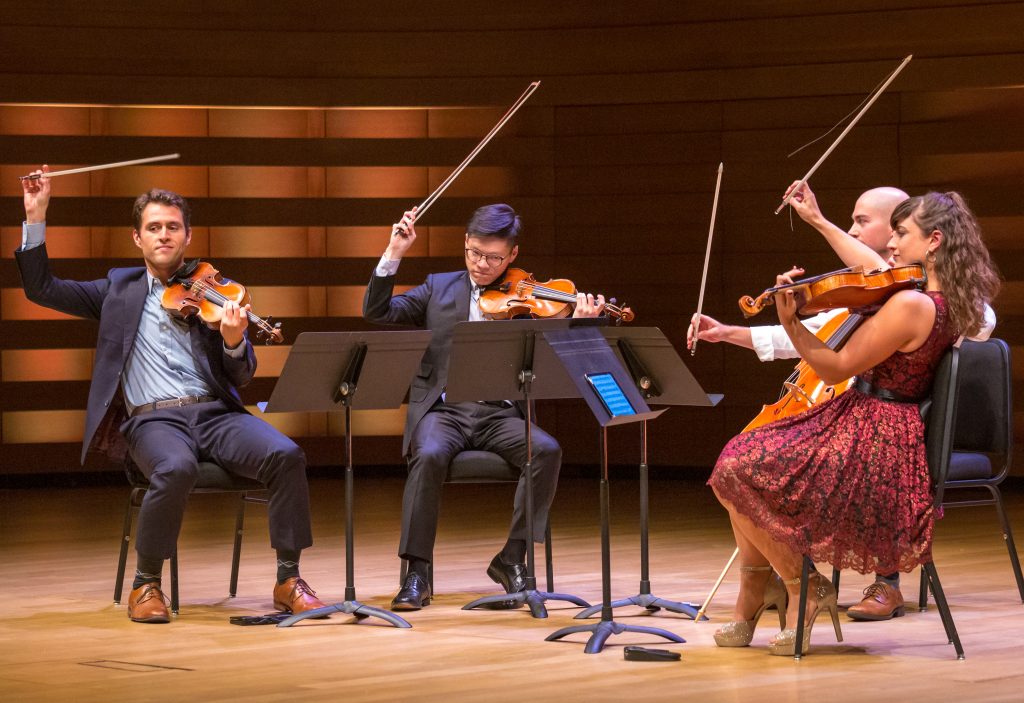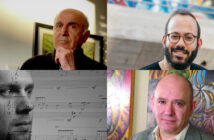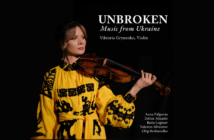
This page is also available in / Cette page est également disponible en:
![]() Francais (French)
Francais (French)
Toronto Summer Music (TSM) has been a pillar of the city’s classical music scene since its inception in 2006, by founding Artistic Director Agnes Grossmann. The festival offers four packed weeks of chamber music concerts, solo recitals, lectures and training opportunities for early career professional musicians and amateurs alike. Currently leading the charge is the festival’s third artistic director, Canadian violinist Jonathan Crow.
From Guest Artist to Artistic Director
Crow is well known to classical music lovers in Toronto and beyond. He is the current concertmaster of the Toronto Symphony Orchestra, a position he has held since 2011, and was previously concertmaster of the Orchestre symphonique de Montréal (2002-2006).

Jonathan Crow
In addition to these major appointments, he appears regularly as a soloist with major orchestras around the world, and is a founding member of the Juno Award-winning New Orford String Quartet. When he isn’t on the concert stage, Crow maintains an active teaching career, and has held faculty positions at both McGill University and the University of Toronto.
This combination of professional accolades and curiosities indicate that Crow’s early involvement with TSM was totally organic. What better fit for a festival that marries high-level chamber performance with music education than someone who has actively maintained footholds in both areas throughout his career?
Crow was invited to participate in the festival as a faculty member by Douglas McNabney, the previous artistic director. “Before I had moved to Toronto,” Crow says, “I had the opportunity to get to know the festival, and the academy. I really believed in Douglas’s philosophy.” Crow recalls being inspired by the opportunities created by the festival for TSM Academy participants—early career musicians—to perform on stage with their teachers and mentors. Soon after, he heard that McNabney would be stepping down from his role. Crow became TSM’s third artistic director in the fall of 2016.
Combining Education, Outreach and Artistry
Under his leadership, the festival has blossomed into an impressive three-pronged, four-week-long event. Beyond the typical performance activities of a summer music festival, it is TSM’s Academy that makes it unique. Through its two programs—Art of Song (for pianists and singers), and its Chamber Music Institute, for instrumentalists interested in chamber music—the academy acts as a “pre-professional bridge,” explains Crow, between upper-level music education and the working world.
“In the professional world, instead of getting six weeks of rehearsal time, like you would in school, you might get six hours. This requires a different level of preparation. Students get the opportunity to perform on stage with their mentors, to learn how to interact with their colleagues in professional rehearsal settings.”
TSM also offers audiences the opportunity to get on stage as part of their community program, which runs for one week during the festival. “These are people,” usually about 70 of them, who “just want to play,” says Crow. “It’s incredible to see people who love it, and who take time out of their lives—take time off work—to play music together, to do this thing that I get to do every day. There are people for whom these are bucket-list experiences.” Watching community members get excited about playing canonical repertoire that the average orchestral musicians likely feel they’ve played one too many times “rekindles a love for many of the mentors and professionals,” says Crow, and “it reminds me how lucky I am.”
Voices Within
Each year, the festival has a theme—this year, the concerts are unified under the idea of Voices Within. Crow explains that the theme was derived from programming choices, and not the other way around. “We get programming going, and work with artists,” he says, “and then the theme emerges.” This method ensures that the festival theme will be something that he, TSM’s artistic staff, and the invited musicians, really believe in. “This year we have a lot of vocal music, and a lot of music that is influenced by vocal music. … I talked to artists about what they wanted to play, and what voice they wanted to bring to the stage.”
In its most literal interpretation, the theme will be emphasized in recital by soprano Elisabeth St-Gelais, Inuit throat singer Celina Kalluk, Dame Sarah Connolly, and in performances by the emerging artists taking part in the Art of Song program.
More subtle inferences of the theme can be found across instrumental programs, such as in Crow’s own performance with the New Orford String Quartet. He cites the “cries of labour in the second movement” of Mozart’s String Quartet No. 15 in D minor, K. 421, as but one of the many voices within their program. The quartet will also play works by Schubert, and Canadian composer Ian Cusson, two composers “known for their vocal music, and influenced by the voice.”

The Dover Quartet at Toronto Summer Music, performing in Koerner Hall
Violinist Kerson Leong, on the other hand, will bring his unique artistic voice to Beethoven’s Violin Concerto in D major, Op. 61, in Beethoven Unleashed. “I love the way he plays Beethoven,” says Crow. “He plays it like nobody else.” Schmaltz & Pepper will debut as a new group, introducing their joyful, lively artistic voice to Toronto audiences for the first time. And Ukrainian pianist Vadym Kholodenko will present a “true musician’s program” of Handel, Beethoven and Prokofiev. “Every single note Vadym Kholodenko plays is beautiful,” says Crow.
Through all the business of the festival, the highlight for Crow remains “interacting with the audiences” and “seeing the halls totally packed” with a crowd eager to hear what TSM has to offer. What better way to spend the summer months than trading the noise of the city for innovative, community-oriented musical excellence!
Toronto Summer Music runs from July 11 to Aug. 3: www.torontosummermusic.com
This page is also available in / Cette page est également disponible en:
![]() Francais (French)
Francais (French)














